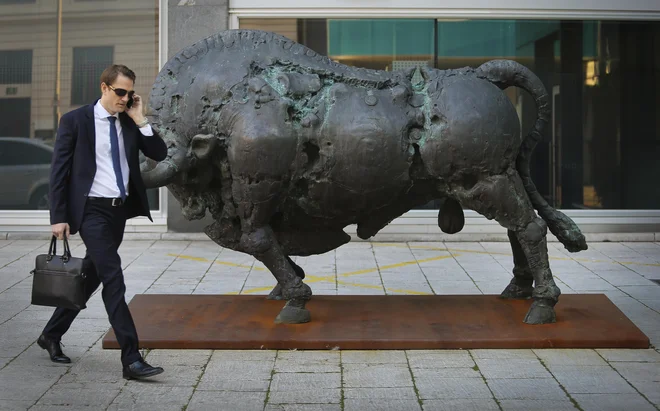Pour with the right and wake up with the left

Contemporary aristocracies – composed of rulers, technocrats, journalists, intellectuals – replicate the condescending look of the Salinas in the classic of Tomasi di Lampedusa, The Leopard. They look with undisguised disdain to the sedars of our time: populist leaders who refuse the protocol, who say what the people think, who dare to exist without license, who dare to represent the excluded from representation. The twilight forces, comfortably installed on their porch at sunset, call them noisy, dangerous, unclean, extremist. But its existence is not an accident: it is necessity. Its ascension is not pathology: it is diagnosis. The growth of parties as the arrival is not an aberration. It is the direct and inevitable consequence of decades of political simulacrum, in which the right pretends to be right and the left pretends to be indispensable.
The figure of Dom Calogero Sedara symbolizes something very deep and recurrent in modern political history: the rise of the excluded, the forgotten, the “humiliated and offended” – of those who do not speak the varnished language of the elites, but the dialect of the people. Ruminated behind the scenes of the elegant world, his victory is not just a literary provincial episode: it is a moment of historical transition. Because the people are not heard when their silence becomes grumbling. Not even when your grumbling becomes screaming. The people are heard when their scream recognizes themselves, becomes aware of themselves. The people are heard when their scream, reaching their inflection point in the discovery of meaning, becomes a voice.
Its triumph marks the ruin of aristocracy as a ruling class and the beginning of a new order where the exercise of power no longer depends on heredity, but on the ability to gain space where there was only exclusion. Sedara is no longer limited to collecting, at the proper and defendant distance, the benevolent crumbs that fall from the Salinas table: take a seat on the table and complain to themselves the main course.
Sedara is therefore a literary symbol of an inescapable truth: popular movements, when they come to power, rarely do so with romantic heroism or stoic patience. They arrive in a hurry, urgently, with impatience. The sedara are, however, a response, more than a reaction. Dom Calogero is not an anomaly of history. It is its inevitable result. One less intruder than a sign, he announces that when history tries to correct his injustices, he rarely does so with appeal and respect for the label. Sedara represents the people who erupt, not who is welcomed.
Political representative of this near-revolution of a popular basis, the arrival fulfills an absolutely essential structural function to political regeneration in Portugal: breaking the theater of consensus. One arrives well above 20% makes the continuity of pretending the central block very difficult. An Electoral Victory of the arrival impossible for the institutional farce to alternate, in the same immovable and inoperative center, the Socialist and Social Democrats Salinas. A center, always in practice left. Sedara is the moment when Sicilian history changes hands: the arrival is the moment when Portuguese democracy takes its destiny in your hands.
We therefore live a preliminary time. A historical crossroads in which the old political order can no longer hide its signs of sunset, but in which the forces that have still made it more and more desperately struggle for their survival. In Portugal, as in other parts of Europe and the western world, the political system is exhausted, eroded by decades of hollow consenses, alternative alternative, of a democracy without true choice.
The risk we face of course: On May 18, many voters, eager for real change, will vote to judge a right-wing government, but may wake up the next day with a left-wing government in the form of a central block: a more or less disguised agreement between the dominant left and the alleged traditional center-right, which will perpetuate precisely what is urgent change. This scenario is not a fantasy: it is the exact repetition of what the system has been guaranteed over the last decades. It is our Salinas continuing to refuse to accept that the new sedars feel at the table.
It has long been right in Portugal not to go right to the right. Even when he wins elections, he does so with the condition of not contradicting the spirit of the regime, shaped and dominated by the ideas of the left. Government by concession and management – and only during the strictly necessary time not to pinch the instituted ideological taboos. All this aggravated by the drop of walls on the left in 2015, while the right is distracted with red lines. The result, of course, is an old simulacrum of alternation: retouching policies, never with runs; Superficial reforms, never structural. The only force capable of breaking with this decaying logic is the arrival, which, with a lot of electoral force, makes any understanding with the socialist party or the left in general. One arrives strong is the only guarantee that the right will rule for the first time in many years, really on the right – with courage, clearly and with reformist commitment.
The so -called central bloc, either government or parliamentary incidence, is the end -of -life system’s survival strategy. It is the tacit alliance that prolongs hegemony of the left, even when it has no majority. It is hegemony without most. It is the political minority prevailing over the sociological majority. And the alleged traditional center-right, even without assuming it, accepts this condition of subordination, this vassalage ritual. Not only for weakness, obviously, but for complicity. Comfortably installed on the system, it is one of its pillars. Its ideological capture and minorization are part of its perpetuation strategy.
This is why it is not enough to change government. It is necessary to change paradigm. A “quasi-revolution” is needed: a civic and political start, a firm and determined displacement, in depth and energy, from the center of gravity of national political life. And this unstoppable change has begun in other parts of the world. In the United States, in various countries in Europe and even within the European Union institutions, a new constellation of right, popular, conservative, liberal, Christian, sovereign-united in the refusal of progressive consensus and the erosion of values that support proud communities and living nations. This new right, like Dom Calogero Sedara, is not just reactive: it represents a project, has a vision and carries a sense of future.
In Portugal, this new popular right has only one political expression: it comes. Only arrives managed to break with the bipartisan system rotting and pave the way to a new tripartid political reconfiguration. Only the arrival can force new bipartisanship between a decline left and a new right determined that wants to achieve political, ideological, programmatic and cultural hegemony. On May 18, vote for the arrival is not, therefore, just another gesture of protest, running out in the discharge of its own frustration. It is a gesture of hope and reconstruction. Because only one arrives strong can: end to the ideological domain of the left in the state and in institutions; lock illegal immigration and insecurity growth; face corruption and restore the authority of the state with seriousness; respond to the housing crisis, intensified by external pressures; Download taxes; bureaucracy; reform the state; Protect agriculture, fisheries, small and medium enterprises; And above all, restore the fundamental values of a political community: freedom, homeland, family, life, safety, work, honor, law and order.
The choice, therefore, is clear. The illusion, however, is also strong. Millions will vote to the right right that they are changing the course of the country – and may find out, perhaps too late, that they have contributed to more of the same, voting in the background against themselves. Be careful, therefore, with the vote on the right that will perpetuate the left.
On May 18th, vote for the arrival is more than a choice of a party: it is a guarantee that we don’t lie with the right and wake up the next day with the left.
Sedara is the moment when undesirables become inevitable. And when the aesthetics of power is no longer enough to hide their emptiness, the time comes to those who speak loudly, those who do not ask for permission, of those who enter without invitation. The tragedy of saline is not being defeated, it is not understand that they have already lost. And it is this vain blindness that transforms the Sedara triumph into an absolute democratic need.
MEPSPUTED ELECTED BY THE ASSE








